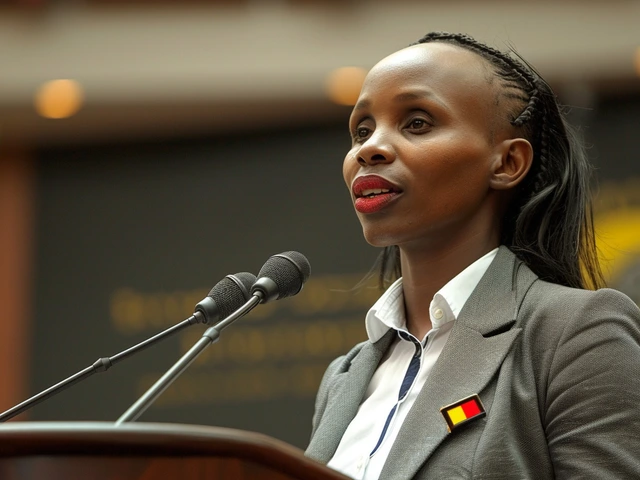The viral announcement—and the reveal
A heartfelt coming-out post from Bryce “Arky” hit X (formerly Twitter) on August 29, 2025—and took off fast. The message said he’d struggled with the decision, that he wanted to tell the truth, and that he was “gay and proud of it.” Support poured in within minutes, pushing the story across the gaming world.
Big names backed him publicly. Nick “Nmplol” replied with a playful nod to supposed off-stream moments: “I knew it the way you and Arther were kissing that one time after stream. Then yall went on the jet skis together at sunset. Congrats man super proud of you!” Emily “Emiru” jumped in with “hell yeah arky!!!” Rachell “Valkyrae” wrote, “YAY ARKY!!!! happy and proud of you.” Ludwig Ahgren added, “congrats bro proud of you <3.”
Then the twist: during a later livestream, Arky said he didn’t write the post. He explained it was a prank pulled by fellow creators Nick “FaZe Lacy” and Jason “Jasontheween,” who had access to his account. The post was removed, but screenshots continued to circulate. The shift from celebration to confusion was whiplash for fans and creators who had rallied around what they thought was a real moment.
It’s not clear how long the prank had been planned or the exact circumstances that gave others access to Arky’s account, but his on-stream clarification drew a line: this was not his announcement, and it wasn’t his choice to share. For anyone who has followed creator culture, that line—between content and personal life—is where things often get messy.
Why did it land so hard? Coming out is one of the most personal things someone can do, and the community’s immediate, public support showed a strong instinct to stand with creators who share big life news. When that news turns out to be a bit, it doesn’t just feel like a joke—it feels like trust was bent to entertain.
- When: August 29, 2025, the post went live on Arky’s verified X account.
- What it said: that he was gay and had struggled with the decision to go public.
- Who reacted: creators including Nmplol, Emiru, Valkyrae, and Ludwig posted congratulations.
- What changed: Arky later said on stream it was a prank by FaZe Lacy and Jasontheween, who had account access.
- Status now: the post was deleted; screenshots and debate remain.
For fans, the takeaway is simple but frustrating: even high-profile posts from verified accounts can be misleading, whether through pranks, “bits,” or poor judgment. For creators, it’s a reminder that shared passwords and casual account access can blow up in unexpected ways.
Pranks, consent, and the line between content and harm
Creator communities thrive on collaboration and chaos. Pranks are part of the culture. But using someone else’s identity—especially for a fake coming-out—touches a nerve. It strips the target of control over deeply personal information and puts everyone who believed the message in an awkward spot.
There’s also the LGBTQ+ angle. Turning a coming-out moment into content reads differently than a harmless gag. Even if no malice is intended, the bit can feel like it treats identity as a prop. That’s why reactions split so fast: some laughed it off as standard creator hijinks; others called it out as crossing a line.
On the platform side, both X and Twitch discourage impersonation and deceptive behavior. Any time someone posts a false personal statement from another person’s account, they risk report-based enforcement and reputational damage, even if the intent was “just a joke.” Creators often operate in gray areas, but platforms don’t always see gray when accounts are misused.
The speed of misinformation made this worse. Big, emotional posts spread faster than walk-backs. Even after Arky’s clarification, the original screenshots kept traveling, detached from the update. That’s how rumors calcify: a dramatic first act, a quiet correction, and a long tail of confusion.
For Twitch streamer Arky, the damage calculation is twofold—personal and professional. Personally, having words put in your mouth about your identity is invasive. Professionally, it complicates brand trust with followers and partners who value clarity over chaos. When every post can be a bit, how do fans know what to believe?
Creators can reduce risk without killing the fun. Keep access tight, set boundaries, and treat personal topics as off-limits for pranks. If account-sharing is unavoidable during collabs or travel, use limited permissions and establish a “no post without approval” rule.
- Lock it down: enable app-based two-factor authentication and avoid SMS-only codes.
- Use permissions, not passwords: where possible, grant role-based access instead of sharing logins.
- Log the logins: review connected apps and sessions; revoke anything you don’t recognize.
- Set red lines: identities, medical info, finances, and family details aren’t content.
- Plan the undo: if a prank goes wrong, correct it fast and clearly across all platforms.
For fans, a little patience helps. If a creator posts major life news, wait for a follow-up on stream or across multiple platforms before treating it as confirmed. Celebrate once the person speaks in their own voice. It protects them—and you—from emotional whiplash.
As for Arky, he’s said his piece: the post wasn’t his. The original message is gone, but its ripple effects aren’t. The episode leaves the streaming scene with familiar questions: how far is too far, what’s fair game for a joke, and who gets to decide when the joke uses someone else’s identity. Those answers will shape the next “viral moment,” long after this one fades from the feed.






ARPITA DAS
September 2, 2025 AT 17:30When the digital world was shaken by Arky’s ‘coming out’ revelation, it felt as if the internet itself had taken a collective breath and held it. The cascade of congratulations from high‑profile streamers turned the moment into a communal celebration, a kind of virtual parade. Yet beneath the surface, I could almost smell the faint whiff of a larger orchestration, a puppet‑master pulling strings from behind the veil of camaraderie. One has to wonder whether the platform’s algorithms, ever‑hungry for engagement spikes, silently nudged these creators into the spotlight. The fact that FaZe Lacy and Jasontheween could so easily infiltrate a verified account suggests a systemic laxity-an oversight that feels less accidental than deliberately permissive. Did they see an opportunity to test the boundaries of consent, or were they simply chasing viral fodder for their own clout? It doesn't help that the community, eager to share in the love, didn't pause to verify the authenticity before amplifying the message. In an age where digital identity can be weaponized, the line between prank and abuse is dangerously thin. The whole episode reads like a cautionary tale for anyone who trusts that online personas are immutable. Perhaps the next time we encounter such a spectacle, we should demand proof before we join the chorus of approval.
Sung Ho Paik
September 15, 2025 AT 13:08Hey everyone, let’s take a step back and reflect on what this teaches us about authenticity and community support. 🌟 Each of us has the power to create safe spaces, and that starts with listening before we celebrate. Remember, a true ally stands with their friend, not just on loud headlines. Keep the conversation honest, and let’s channel this energy into building stronger, more compassionate connections. 💪😊
Sanjay Kumar
September 28, 2025 AT 08:46Honestly this whole thing is just another example of how creator culture has become a circus where the audience drinks the bait without questioning the source-who would have thought that sharing passwords is just part of the daily routine, yet it leads to such blatant misuse of personal narratives. The notion that a "prank" can be justified by the entertainment value it provides shows a troubling lack of moral compass, a sign that the community is too eager to trade authenticity for clicks, and this is not just a minor slip but a symptom of a deeper problem in how we regard personal boundaries on stream. It’s clear that the platforms need stronger oversight and creators must adopt stricter security practices to prevent these sorts of mishaps. The fact that this drama unfolded so publicly also highlights the need for more robust communication channels between collaborators to avoid such costly missteps. In short, this could have been avoided with a few simple policies, and the industry should take note.
Veena Baliga
October 11, 2025 AT 04:24The incident underscores a fundamental responsibility that creators bear towards their audience and nation. While personal liberty is paramount, the exploitation of an individual's identity for mere amusement undermines the moral fabric of our digital society. It is incumbent upon influencers to safeguard the dignity of themselves and others, ensuring that any content aligns with the values we cherish as citizens. A more disciplined approach to account security and ethical content creation would reflect well on our community and its contributions to the nation’s cultural heritage.
vishal Hoc
October 24, 2025 AT 00:02It’s pretty clear that the best way forward is to keep things simple and respectful. If we all take a moment to think before we act, especially with someone’s personal story, we can avoid hurting each other. Let’s focus on supporting creators in ways that don’t cross those personal lines. A little caution goes a long way.
vicky fachrudin
November 5, 2025 AT 18:41First, let me express my appreciation for the nuanced discussion that has emerged around this incident; it is a testament to the community’s capacity for self‑reflection, and it is, frankly, a moment ripe with educational potential. Second, the ethical implications of using a personal revelation as a comedic device cannot be overstated, for it touches upon the core principles of consent, agency, and respect for identity. Third, creators must establish clear boundaries: if a topic is inherently personal-such as sexual orientation, health, or family matters-it should be explicitly excluded from any form of public parody. Fourth, technical safeguards, including two‑factor authentication and role‑based permissions, are not merely recommendations but essential components of a responsible digital workflow. Fifth, when a misstep occurs, the corrective action should be swift, transparent, and consistent across all platforms, thereby mitigating lingering misinformation. Sixth, audiences, too, share responsibility; we should cultivate a habit of verifying significant announcements through multiple reliable sources before reacting. Seventh, platforms themselves must enforce policies that discourage deceptive practices, while also providing clear pathways for victims to report abuse. Eighth, the ripple effect of such controversies highlights the need for ongoing dialogue surrounding the intersection of entertainment and personal truth; without it, we risk normalizing exploitation under the guise of humor. Finally, let us all, as participants in this vibrant ecosystem, commit to fostering an environment where creativity thrives alongside compassion, and where the line between jest and harm is never blurred.
subhashree mohapatra
November 18, 2025 AT 14:19Look, this whole prank was a low‑effort attempt at grabbing attention, and it fell flat because it trampled on genuine personal experience. It's a reminder that not every stunt is clever-some are just plain disrespectful.
Mansi Bansal
December 1, 2025 AT 09:57I think its really important to nd how pranks like ths affect not just the streamer but also the community itft. When personal stuff is usedas a jke it can cause real harm, and we should be more carefull about the lines we cross. It's a lesson we should all take to heart, especially in this digital age where everything spreads so fast.
ajay kumar
December 14, 2025 AT 05:35What a mess!
Sampada Pimpalgaonkar
December 27, 2025 AT 01:13Hey, I get how chaotic things can get online, but maybe we can all try to keep it chill and supportive? No need to stir up drama-just enjoy the streams and respect each other's space.
Chinmay Bhoot
January 8, 2026 AT 20:51Seriously, the whole 'prank' looks like a lazy content grab that shows just how far some creators will go for a laugh, regardless of the emotional fallout. This is exactly why we need stricter community standards.
Raj Bajoria
January 21, 2026 AT 16:30Pranks can be funny but they shouldn't hurt people. Respect boundaries.